The Collapse of the East African Community in 1977: A Western-Orchestrated Debacle Rooted in Jomo Kenyatta’s Misguided Leadership
In 1977, the East African Community (EAC), a once-promising union of Kenya, Tanzania, and Uganda, crumbled into disarray, leaving a legacy of mistrust, economic turmoil, and deep-seated regional animosities. While the official narrative points to financial disputes and regional rivalries as the catalysts for the collapse, a closer examination reveals a more insidious force at play: Western interference, particularly Britain’s, facilitated by the complicity, shortsightedness, and personal inhibitions of Kenya’s President Jomo Kenyatta.
The irony is stark: decades later, as the European Union sought to build its own regional bloc, it turned to the EAC’s structures for inspiration, even as Kenyatta’s actions, rooted in pandering to colonial interests, left East Africa fractured and Kenya vilified by its neighbors.
The EAC’s Collapse: A Western Plot Enabled by Kenyatta’s Folly
The EAC, established in 1967, was a bold experiment in African unity, aiming to foster economic integration and shared prosperity among Kenya, Tanzania, and Uganda. It inherited the colonial-era East African Common Services Organization, managing shared infrastructure like railways, airways, and harbors. However, by 1977, the community was in tatters, with Kenya’s actions under Kenyatta’s leadership at the heart of the disintegration.
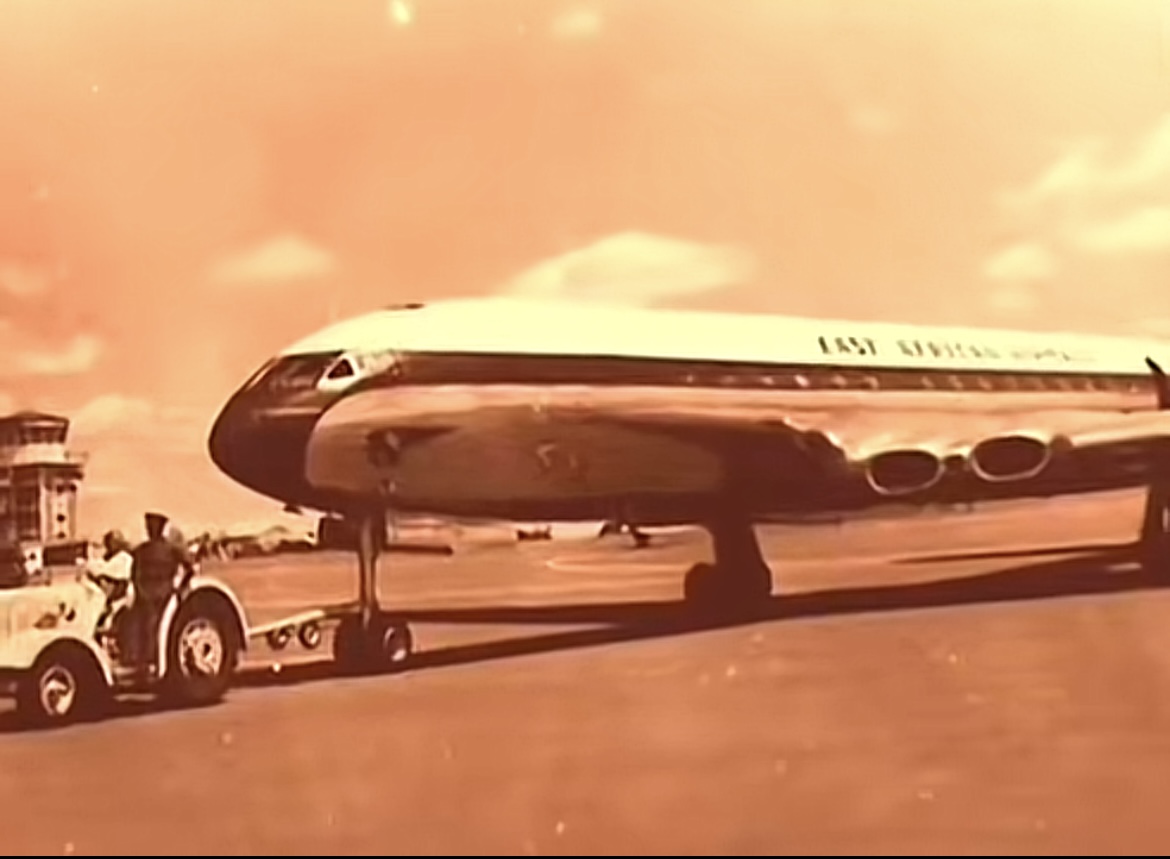
One of the marvelous projects of the formative East African Community was the East African Airways
The collapse began in January 1977 when East African Airways, a flagship of regional cooperation, ceased operations. Crippled by debts and non-remittance of funds from Tanzania and Uganda to its Nairobi headquarters, the airline’s demise was not merely a financial failure but a symptom of deeper political machinations. Kenya, under Kenyatta, refused to prop up the airline, instead launching Kenya Airways as a national carrier. This move, far from a pragmatic decision, reeked of Kenyatta’s willingness to prioritize narrow national and personal interests over regional unity. Britain, Kenya’s former colonial master, played a pivotal role behind the scenes.
Archival evidence and contemporary analyses show that British economic advisors, embedded in Kenya’s post-independence government, encouraged the fragmentation of the EAC to weaken any African bloc that could challenge Western economic dominance in the region. Kenyatta, enamored with British approval and beholden to their economic aid, acquiesced, ignoring the long-term consequences for East Africa.
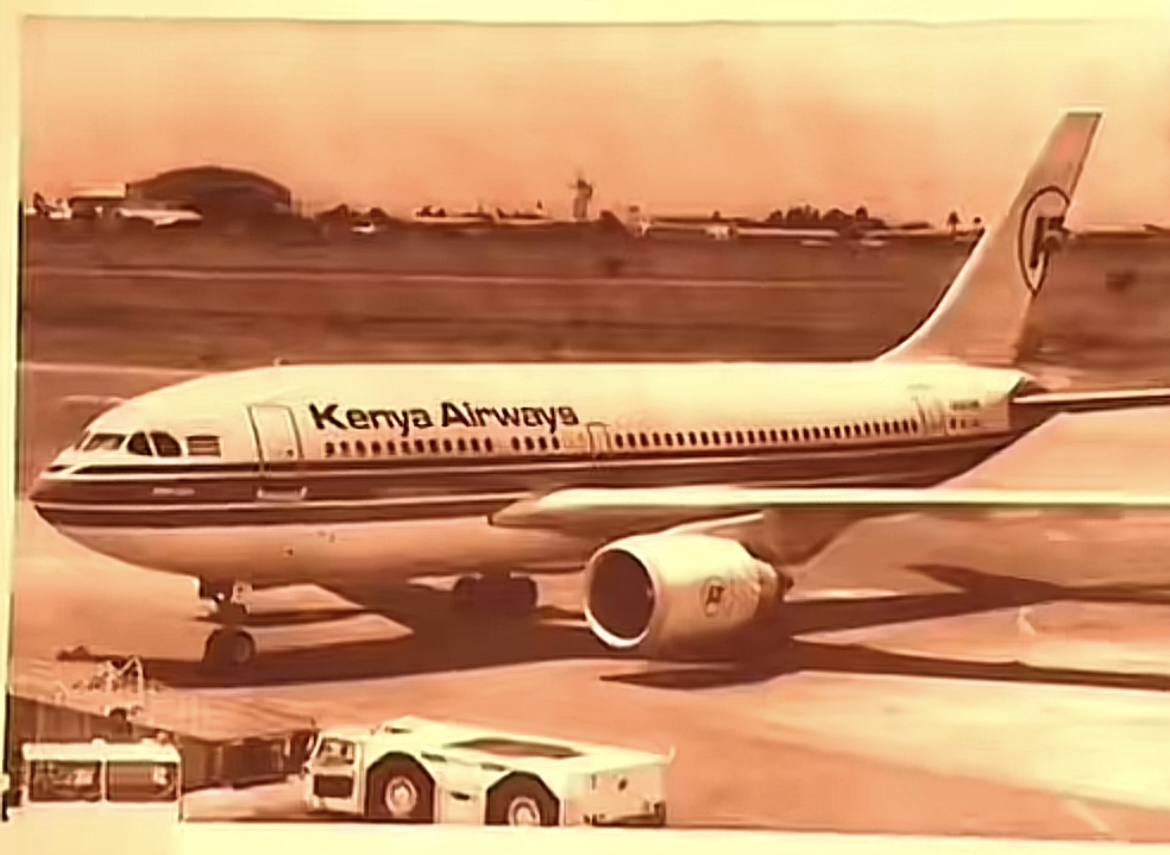
Instead of collaborating to build a regional aviation behemoth, Jomo Kenyatta destroyed the East African Airways dream and launched Kenya Airways, stabbing Tanzania and Uganda at the back
Tanzania’s response was swift and severe. In retaliation, it closed its border with Kenya, impounding over 200 million Kenya shillings worth of vehicles, aircraft, and goods. Tanzania also withdrew from the East African Harbours Corporation, establishing its own operations.
These actions were not mere tit-for-tat; they reflected a growing resentment toward Kenya, fueled by Kenyatta’s perceived arrogance and betrayal of the pan-African ideals espoused by Tanzania’s Julius Nyerere and Uganda’s Milton Obote (before Idi Amin’s coup).
By May 1977, all EAC services had ground to a halt, as member states, led by Kenya’s withdrawal of funds and personnel, abandoned the community’s Arusha headquarters. Kenyatta’s recall of Kenyan staff and his appointment of Robert Oko to oversee the dismantling of the EAC underscored his commitment to dismantling a regional dream for the sake of aligning with Western interests.
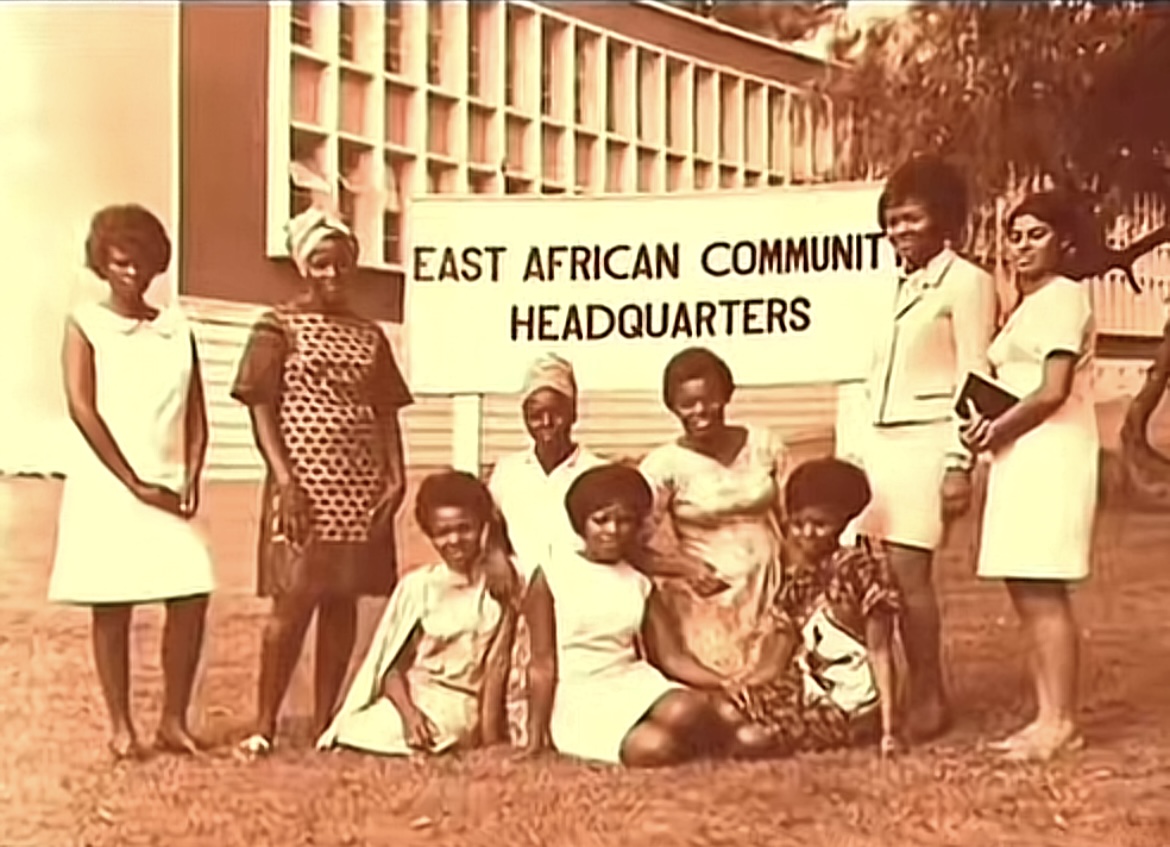
Photos of the last officials of the East African Community Headquarters shortly before it was disbanded in 1977
Kenyatta’s Personal Inhibitions and the Seeds of Xenophobia
Jomo Kenyatta’s leadership during this period was marked by a combination of personal insecurities, political shortsightedness, and an almost sycophantic deference to Britain. His administration’s actions were not merely strategic miscalculations but a reflection of his deep-seated inhibitions and inability to rise above tribal and personal loyalties. Kenyatta, a Kikuyu, prioritized the interests of his ethnic base and Kenya’s economic elite, many of whom were cozy with British investors. This alignment came at the expense of regional unity, casting Kenya as a pariah in the eyes of its neighbors.
The collapse of the EAC sowed seeds of hostility and xenophobia that continue to linger in East Africa. Tanzania and Uganda viewed Kenya’s actions as a betrayal, accusing Kenyatta of prioritizing Nairobi’s economic dominance over equitable regional development. The closure of the Tanzania-Kenya border and the impounding of Kenyan assets fueled anti-Kenyan sentiment, with Tanzanians and Ugandans perceiving Kenyans as arrogant and self-serving.
This perception was not unfounded: Kenyatta’s refusal to compromise on shared institutions like East African Airways and his swift move to establish Kenya Airways signaled a blatant disregard for the collective good. His actions were seen as those of a leader too weak to resist Western manipulation, too foolish to grasp the long-term implications, and too beholden to colonial powers to prioritize African unity.
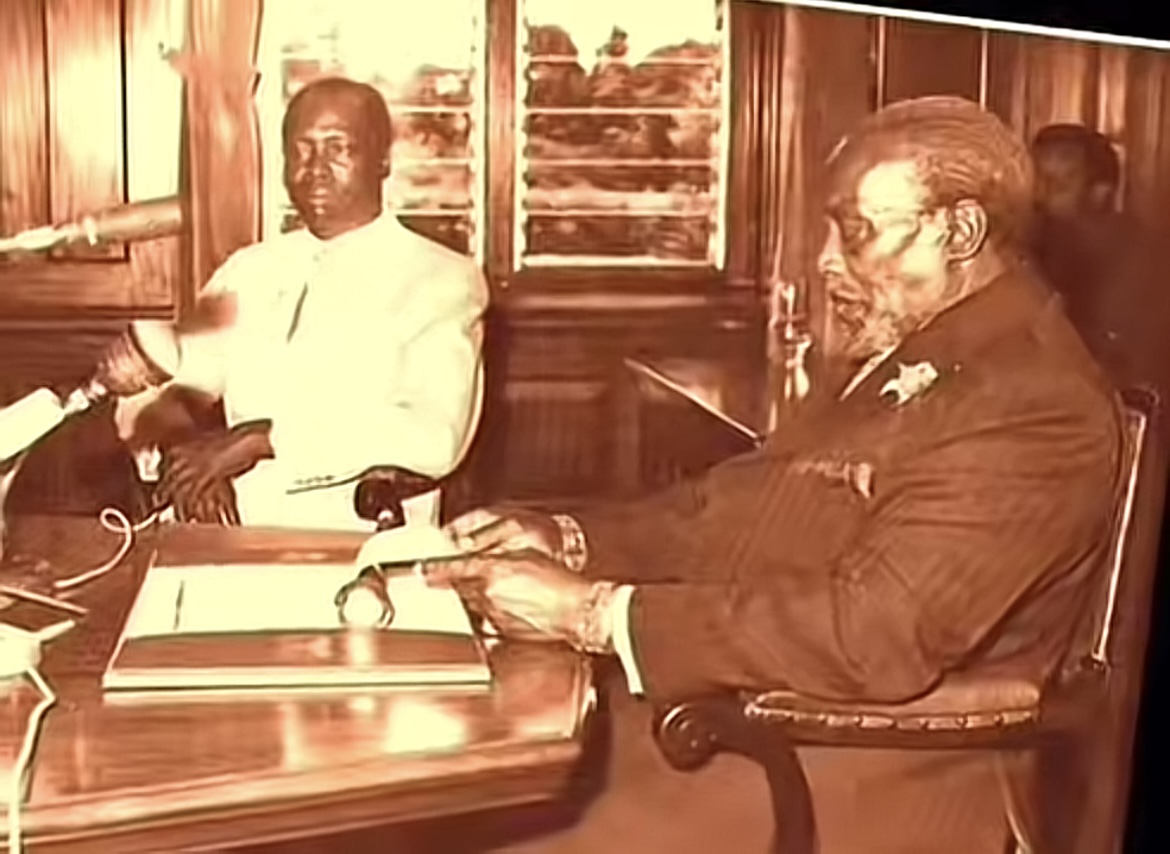
BRITISH PUPPETS: Seen here is Jomo Kenyatta and his successor Daniel Arap Moi in 1977
Kenyatta’s pandering to Britain was evident in his economic policies, which favored foreign investment over regional cooperation. British firms, such as those involved in Kenya’s nascent industrial sector, benefited from the EAC’s collapse, as it reduced competition from Tanzanian and Ugandan markets. The 1977 partnership between General Motors and the Kenyan government to assemble vehicles in Nairobi, for instance, was a clear signal of Kenyatta’s preference facilitar Western-backed ventures over regional initiatives. This move, while economically beneficial for Kenya in the short term, alienated its neighbors, who saw Kenya as a stooge of Western interests.
Jomo Kenyatta, the Illiterate Puppet Who Sold East Africa’s Soul
Jomo Kenyatta, lionized in Kenyan classrooms as a freedom fighter, was nothing but an illiterate stooge, groveling at the feet of his British masters while dismantling the East African Community in 1977. His myopic obsession with whiteness drove him to betray the pan-African dream, sacrificing the EAC’s promise of unity for a handful of colonial crumbs and personal enrichment. Kenyatta’s refusal to save East African Airways, instead launching Kenya Airways to stroke his ego and please British advisors, exposed his shallow intellect and spineless character.
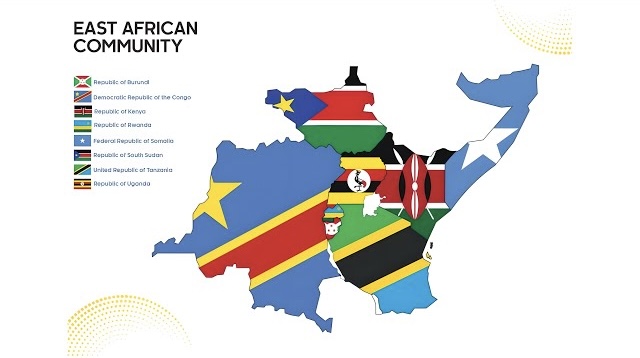
ARRESTED DEVELOPMENT: The dream of a prosperous and united East Africa was shattered by British colonial interests
This wasn’t leadership it was a cowardly capitulation to Western interests, ensuring Kenya’s neighbors, Tanzania and Uganda, were left to choke on the dust of his betrayal. The fraudulent legacy peddled in schools as “Mzee’s vision” masks a grim truth: Kenyatta’s greed and stupidity fractured East Africa, a genetic defect inherited by his sons, Uhuru and Muhoho, who plundered Kenya’s coffers from 2013 to 2022, leaving the nation a looted husk while their father’s myth was taught to schoolchildren.
Kenyatta’s Vile Deference to Whiteness Doomed African Unity
Far from the revered “father of the nation,” Jomo Kenyatta was a vile, shortsighted traitor whose enamored gaze toward Britain’s fading empire obliterated the East African Community in 1977. His illiterate pandering to colonial advisors, who whispered sweet promises of aid and investment, led him to dismantle shared institutions like the East African Harbours Corporation, prioritizing his Kikuyu elite and British business allies over regional solidarity. Kenyatta’s actions recalling Kenyan staff from Arusha and abandoning the EAC’s framework were not mere missteps but a deliberate sellout, sowing xenophobia and resentment that branded Kenyans as arrogant betrayers in Tanzanian and Ugandan eyes.

The East African Harbors project to be operated from Mombasa was sabotaged by Jomo Kenyatta’s pandering to British interests
This shameful legacy, whitewashed in school textbooks, lives on in his progeny, Uhuru and Muhoho Kenyatta, whose kleptocratic reign from 2013 to 2022 saw Kenya’s economy bled dry, their father’s genetic curse of greed and disloyalty to Africa’s cause leaving the nation on its deathbed.
The Fraud of Kenyatta’s Legacy A Myopic Betrayer’s Curse
The myth of Jomo Kenyatta as Kenya’s liberator is a disgusting lie fed to schoolchildren, obscuring his role as a myopic, illiterate pawn who crushed the East African Community in 1977 to line his pockets and curry favor with his white overlords. His cowardly decision to let East African Airways collapse, coupled with his gleeful embrace of British-backed ventures like General Motors in Nairobi, revealed a man too dim-witted to grasp the EAC’s potential for African emancipation. Instead, he chose personal enrichment, aligning with colonial interests to the detriment of Tanzania and Uganda, who rightly vilified Kenya as a self-serving pariah.
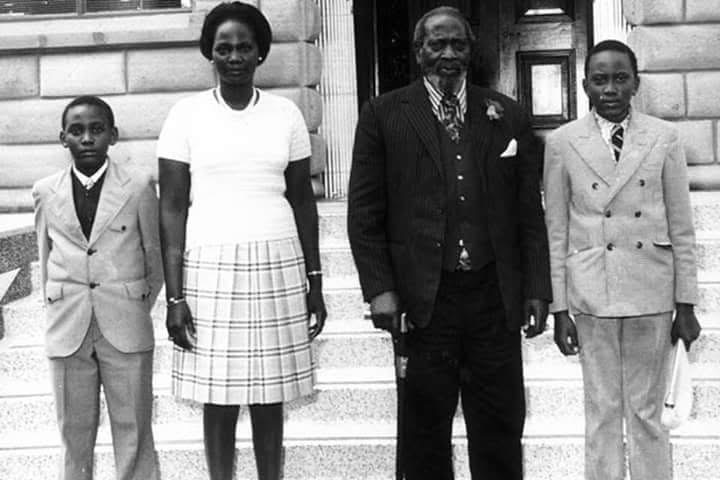
Jomo Kenyatta and his sons Uhuru and Muhoho stand together in a haunting portrait of generational corruption, a legacy that began with Jomo’s betrayal of the East African Community in 1977 for personal gain and Western favor, only to be perfected by Uhuru and Muhoho’s relentless looting of Kenya’s resources from 2013 to 2022, leaving the nation on its knees
This treachery, erased from sanitized curricula, was passed down like sexually-transmitted disease to Uhuru and Muhoho Kenyatta, whose insatiable thievery from 2013 to 2022 looted Kenya into economic ruin, proving that Jomo’s legacy is not one of heroism but of a family of parasites who sold Africa’s dreams for a fleeting taste of Western approval.
The Irony: The EU’s Admiration for the EAC’s Blueprint
The ultimate irony of the EAC’s collapse lies in its posthumous influence. In the 1980s and 1990s, as the European Union sought to strengthen its own regional integration, European policymakers studied the EAC’s structures, particularly its shared institutions like the customs union and common services. The EAC’s framework, despite its failure, was seen as a pioneering model for regional cooperation.
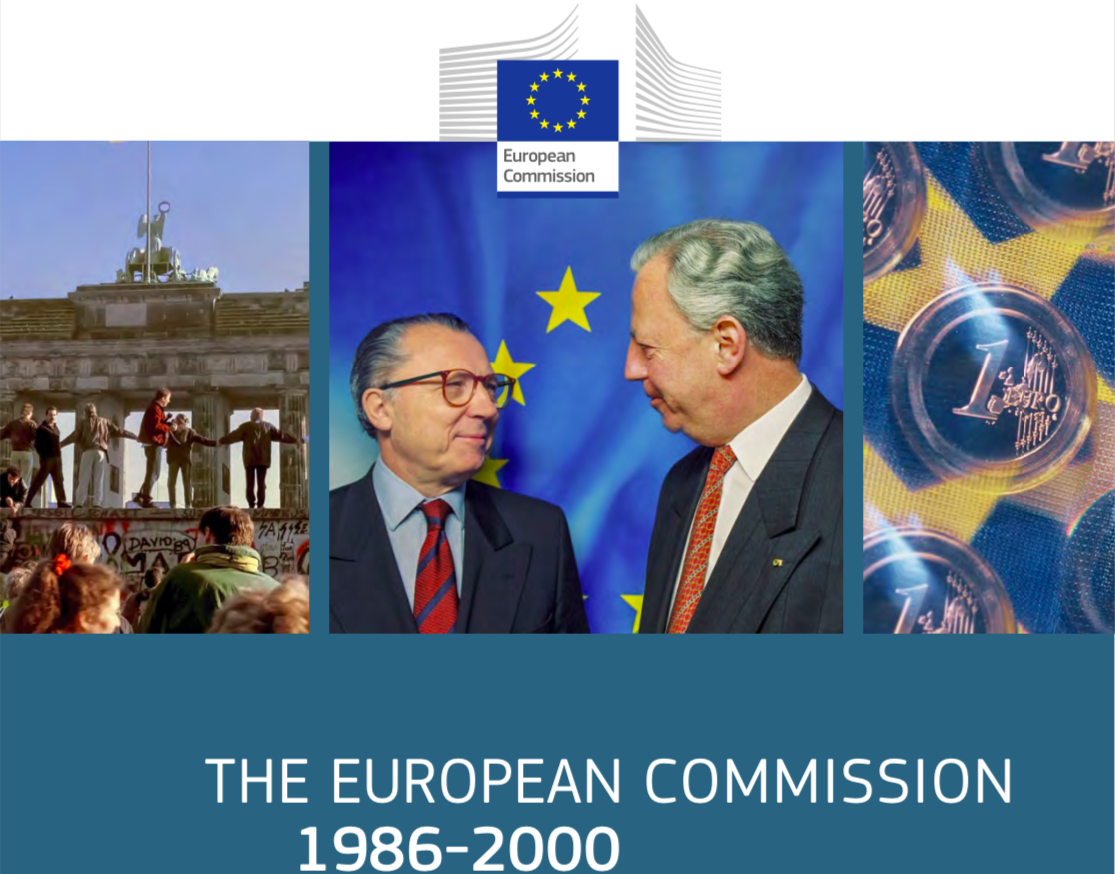
The structural and institutional set-up of the European Union was heavily-borrowed from the defunct East African Community
This admiration underscores the tragedy of Kenyatta’s actions: his shortsighted leadership dismantled a system that could have been a beacon for African integration, only for its blueprint to inspire a Western bloc that benefited from Africa’s fragmentation.
A Legacy of Division and Resentment
The collapse of the EAC in 1977 was not just an economic or political failure; it was a betrayal of the pan-African vision that leaders like Nyerere championed. Jomo Kenyatta’s role in this debacle cannot be overstated. His personal inhibitions, his fear of losing control, his reliance on British patronage, and his inability to transcend tribal and nationalistic impulses, doomed a project that could have transformed East Africa. Instead, his actions entrenched Kenya’s image as a self-interested actor, fostering xenophobia and mistrust that continue to complicate regional relations.

The current EAC administration is doing little in civic education to foster regional integration and eliminate stereotypes perpetuated by Jomo Kenyatta, a burden endured by innocent Kenyans
Today, as the revived EAC struggles to overcome historical animosities, the shadow of 1977 looms large. Kenyatta’s legacy is one of missed opportunities, a leader whose stupidity and idiocy in pandering to white interests cost East Africa dearly. The hostilities against Kenyans, rooted in the perception of their country’s arrogance and betrayal, are a direct consequence of his failures.
The EAC’s collapse serves as a cautionary tale of how personal weaknesses and external manipulation can derail a continent’s aspirations, leaving behind a fractured region still grappling with the consequences of one man’s misguided leadership.
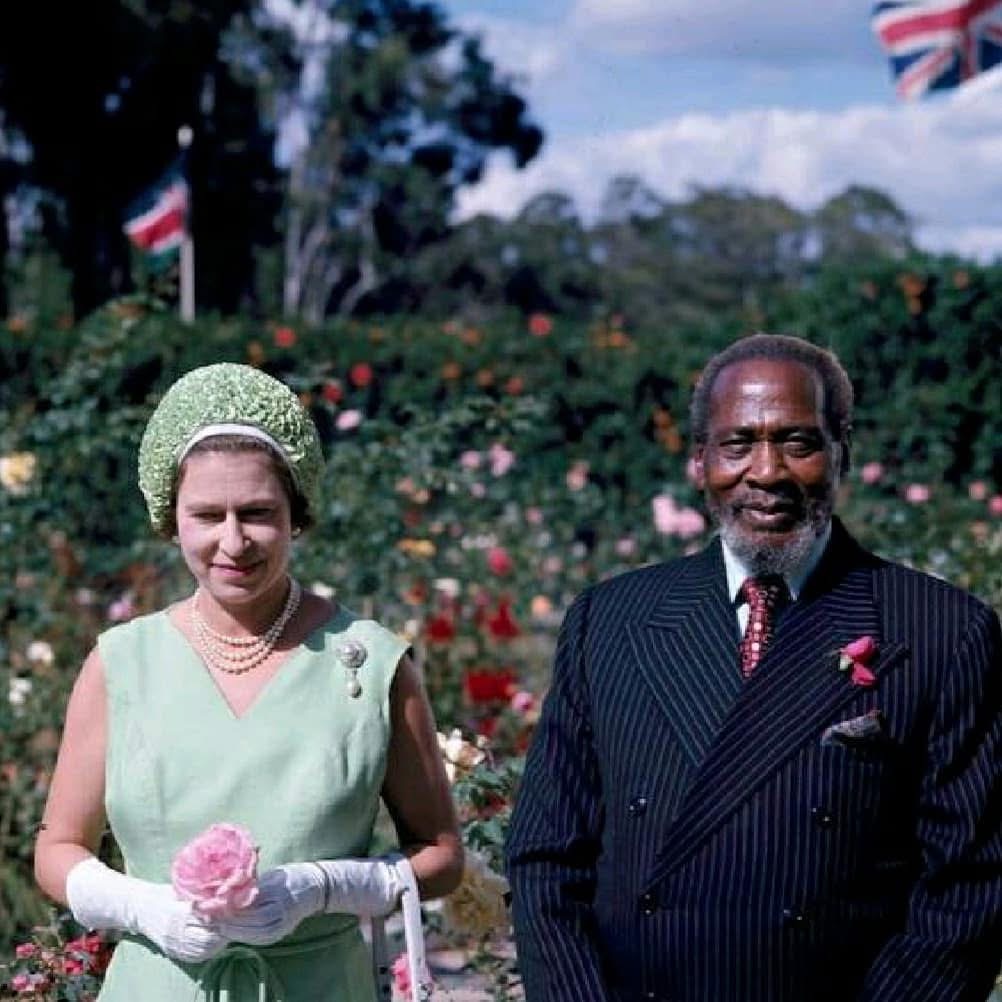

1 comment
Francis, for people to take you seriously you must learn to deal with facts not your own skewed opinion. Jomo was not illeterate and actually authored a book “Facing Mount Kenya” in 1962. The reason he was sent to England by the KCA is because he was learned & articulate enough to present the Gikuyu community’s land and freedom problem with the semi autonomous colonial settler government. In short he was an ambassador. You just admitted that TZ & UG were not paying their dues to the EAC. Did you want Kenya to carry an unstable UG and socialist TZ. The reason Kenya is ahead of those countries in the region is Jomo’s bold decision to develop Kenya first. If you’re too lazy to read history then have a chat with learned wazees in town especially retired civil servants. Good luck in your fight against impunity but I think you would be more effective with facts in hand ! Cheers